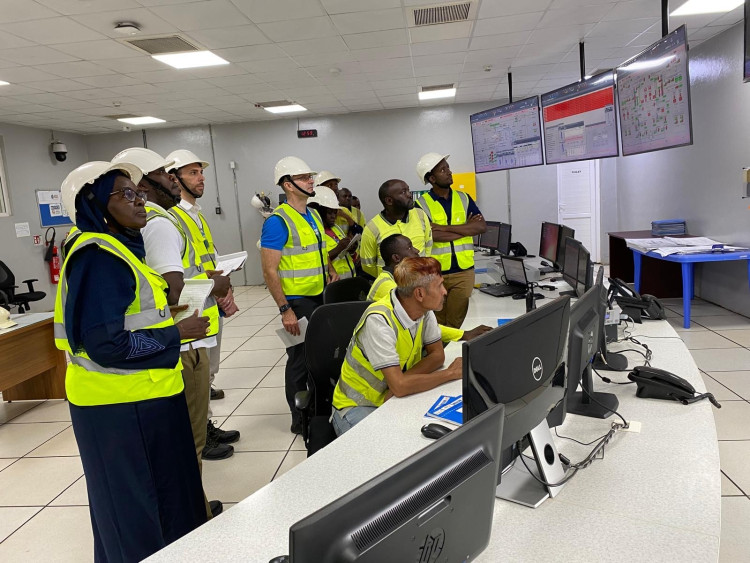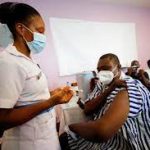An International Atomic Energy Agency (IAEA) team of experts has concluded a two-week International Physical Protection Advisory Service (IPPAS) mission in Rwanda.
The mission, conducted at the request of the Government of Rwanda, took place from 28 October to 8 November 2024. It was the first IPPAS mission to Rwanda.
Hosted by the Rwanda Utilities Regulatory Authority (RURA), the six-person mission team reviewed Rwanda’s nuclear security regime for radioactive material, associated facilities and activities. As part of the review, the IPPAS team visited Gisagara Thermal Power Station, which utilizes radioactive sources to measure the level and consistency of peat fuel, in Southern Province of Rwanda. The team also visited the Rwanda Cancer Center, which is setting up their first brachytherapy unit, at the Kanombe Military Hospital in Kigali.
Rwanda accepted the 2005 Amendment to the Convention on the Physical Protection of Nuclear Material (CPPNM) in 2021. This Amendment significantly enhances the original CPPNM by broadening its scope and establishing obligations for Parties to ensure the physical protection of all nuclear facilities and nuclear material used for peaceful purposes, whether in domestic use, storage, or transport.
The IPPAS team, led by Simon Vleugels of the Authority for Nuclear Safety and Radiation Protection in the Netherlands, included experts from Ghana, Nigeria, Senegal and Uganda, as well as one IAEA staff member. The team held discussions with officials from the Ministry of Emergency Management, Ministry of Health, Ministry of Justice, Rwanda Atomic Energy Board, Rwanda Defence Force, Rwanda Environmental Management Authority, Rwanda Food and Drug Authority, Rwanda Investigation Bureau, Rwanda National Police, and customs and immigration authorities.
The team commended Rwanda for its comprehensive actions taken to enhance its nuclear security regime and for the effective collaboration among different competent authorities in nuclear security. The IPPAS team provided recommendations and suggestions to help Rwanda further enhance its nuclear security procedures and practices.
Additionally, the team identified good practices that could serve as valuable examples for other IAEA Member States, contributing to long-term improvements in global nuclear security.
Elena Buglova, Director of the IAEA Division of Nuclear Security, commended Rwanda’s on-going effort to ensure that critical infrastructure and nuclear and other radioactive material used in the county are secure. “The findings of the IPPAS mission in Rwanda will further contribute to the establishment of a robust nuclear security regime in the country.”
“As Rwanda embarks on the path toward expanding its use of nuclear technology, particularly in healthcare and energy sectors, there is a huge need to strengthen its regulatory framework and build a robust infrastructure for nuclear security that will protect both our people and our environment,” said Evariste Rugigana, Director General of RURA. Earlier this year, the Rwanda Atomic Energy Board signed a memorandum of understanding for the deployment of small modular reactors.
“This IPPAS mission will be crucial in ensuring that the highest levels of security are maintained. The mission also reflects our commitment to ensuring the safety and security of nuclear materials and facilities in our country by working closely with international experts. Our collaboration with the IAEA through IPPAS will help us adopt best practices and enhance our readiness to respond to any security challenges,” he added.
The mission was the 106th IPPAS mission conducted by the IAEA since the programme began in 1995.
IPPAS missions are intended to assist States in strengthening their national nuclear security regime. The missions provide peer advice on implementing international instruments, along with IAEA guidance on the protection of nuclear and other radioactive material and associated facilities.
During missions, a team of international experts observes a nation’s system of physical protection, compares it with international good practices and makes recommendations for improvement. IPPAS missions are conducted both on a nationwide and facility-specific basis.
SOURCE: iaea.org





